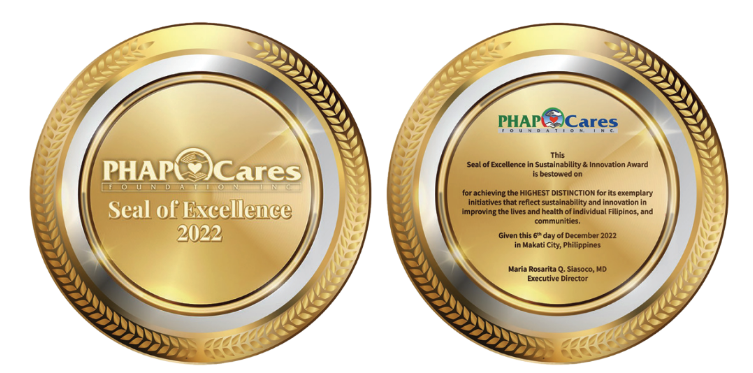Last Dec. 6, 2022, the first-ever Seal of Excellence in Healthcare Awards was given by PHAPCares Foundation, the corporate social responsibility arm of the Pharmaceutical and Healthcare Association of the Philippines (PHAP). The CSR Seal of Excellence in Innovation and Sustainability Award is in partnership with the Department of Health (DOH) and the Philippine Medical Association (PMA).
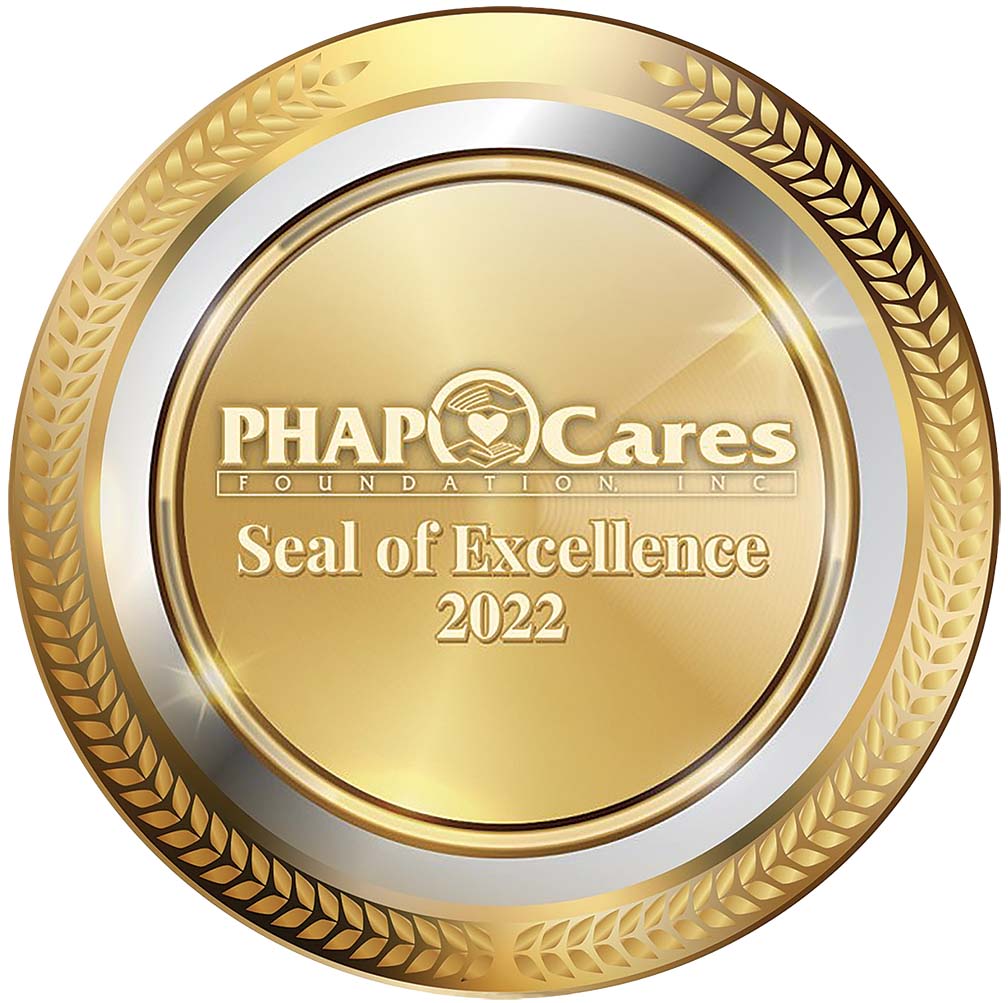
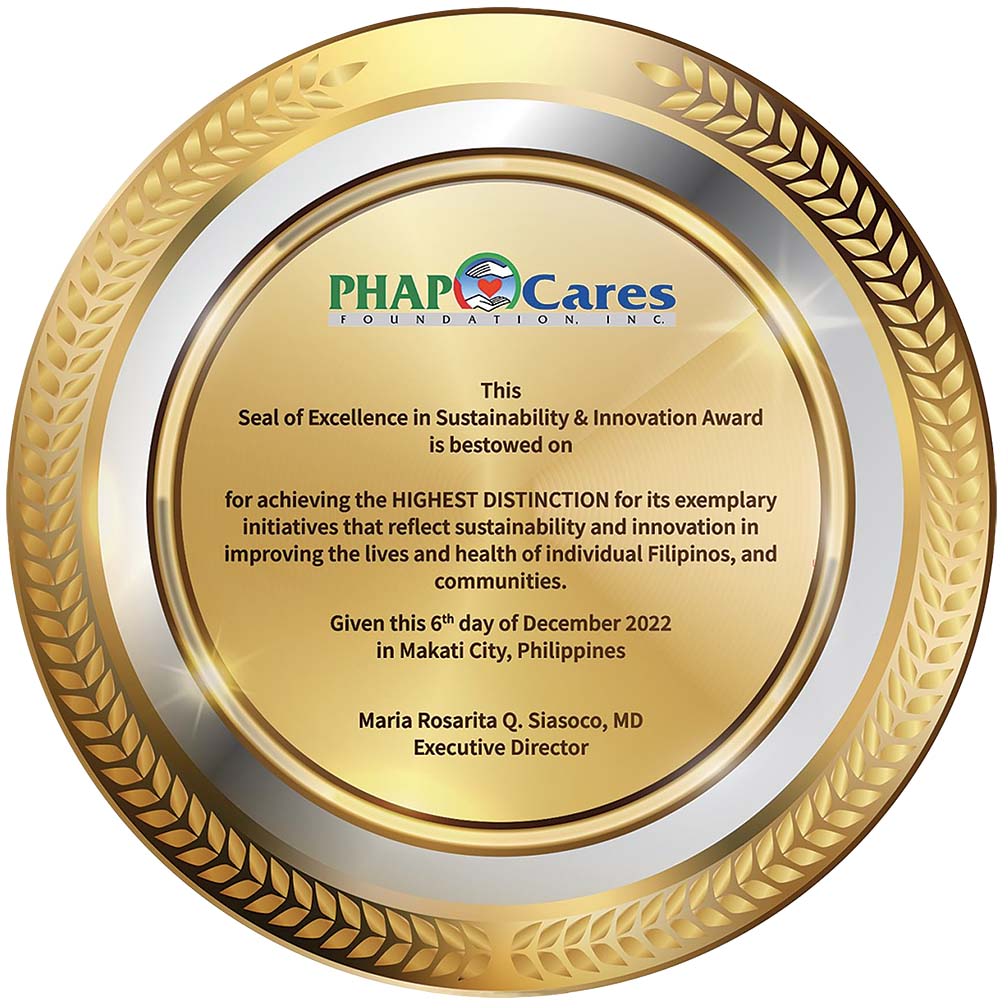
Given during the Foundation’s General Membership Meeting, the seals of excellence covered two categories—Seal of Excellence in Healthcare Awards and Seal of Excellence in Sustainability and Innovation Awards.
“PHAPCares has a long history of leadership when it comes to corporate citizenship. Through this first-ever awards, we aspire to recognize our members who have been partnering with the government, various institutions and communities for a healthier and more productive Philippines. We hope to further inspire them to forge more collaborations toward sustainable health, and to instill social and economic impact on communities,” said PHAPCares president Lotis Ramin, who is also president of AstraZeneca Philippines.
For her part, PHAPCares Executive Director Dr. Maria Rosarita Qujano-Siasoco underscored the value of the awards as “an important platform to showcase the several programs of our Members. Their efforts are consistent with our mandate to strengthen communities that may be disadvantaged by sickness, poverty, conflicts, disasters, and the pandemic.”
HEALTHCARE AWARDS
The Foundation’s programs fall under sustainable healthcare, access to medicines, and emergency response and social development. The Seal of Excellence in Healthcare Awards were given to PHAPCares members who participated or supported at least five of the foundation’s activities and at least three of its priority programs.
These programs include—Sustainable healthcare activities, such as Geographically Isolated and Disadvantaged Areas (GIDA) and Healthy Cities; Access to Medicines and Emergency Response Activities (i.e. medical outreach, medicine donation, earthquake/landslide search and rescue orientation course, and disaster response); and Social development activities, that includes CSR for special groups/communities; and CSR for partnerships.
The overall PHAPCares Seal of Excellence Awardee is Roche Philippines. Awarded the Seal of Excellence in Healthcare were Bayer Philippines, Boehringer Ingelheim Philippines, PHILUSA Corporation, Roche Philippines and Takeda Healthcare Philippines.
SUSTAINABILITY & INNOVATION AWARDS
Institutions that participated in a CSR program which reflected sustainability and innovation in making healthcare accessible to Filipinos and communities received the Seal of Excellence in Sustainability and Innovation Award.
Those who took part in this category had to submit information regarding the project that was undertaken. Each project was judged based on the following criteria: Relevance (30%), Project Impact (30%), Use of Innovation (20%), Sustainability or scalability (20%).
Relevance pertains to how a project addressed a pressing health concern. Project Impact, on the other hand, is measured by how the project demonstrated industry corporate citizenship and how the project benefitted communities and improved health outcomes.
Use of innovation pertains to how the project leverages on partnerships or uses creative approaches (i.e. use of technology, etc.) to address a health concern, while Sustainability/scalability is measured by how a project can be sustained and owned by stakeholders and replicated by other communities/partners.
PHAPCares Foundation awarded the Seal of Excellence in Sustainability and Innovation to five companies—AstraZeneca, Boehringer Ingelheim Philippines, Merck, Roche Philippines and Takeda. This year, Roche Philippines emerged as overall winner.—Marian Pausanos
EXCELLENCE AWARD PROJECTS
◾ AstraZeneca—Responding to Filipino Needs with Medicines and Beyond
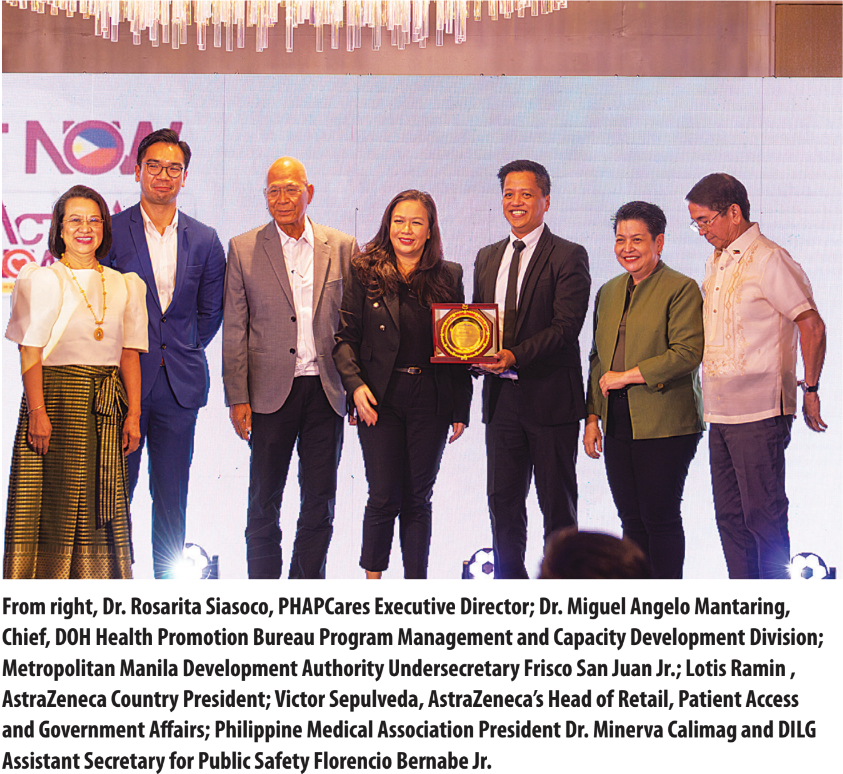
AstraZeneca pushes the boundaries of science to address the burden of the most prevalent noncommunicable diseases (NCDs) such as lung cancer, Type 2 diabetes mellitus, asthma and COVID-19 infection through a collaborative and holistic approach. This involves improving the access to comprehensive disease management and its medicines through integrated healthcare solutions, from education, prevention, diagnosis, and treatment.
AstraZeneca was at the forefront of the fight against COVID-19 through a multilateral agreement which brought the national government, local government units and private sector together to work towards a sustainable immunization program to restore normalcy in the lives of Filipinos. By making the vaccine available in the country at no profit, AstraZeneca demonstrated their commitment to innovation and collaboration to promote meaningful solutions for Filipinos.
Beyond the scope of the pandemic, AstraZeneca is purposeful in helping create healthier societies, collaborating with partners to tackle major health challenges in the country with various initiatives.
The ACT Now program was created, in partnership with Diabetes Philippines, as a response to address the growing burden of CKD, as a complication of Type 2 Diabetes and Hypertension in the Philippines. AstraZeneca recognizes the urgency of addressing shared risk factors between these distinct but interrelated disease areas from the often-devastating consequences of such renal and metabolic diseases, alongside with heart failure and cardiovascular diseases having 1 out of 2 patients dying within 5 years of diagnosis.
With AstraZeneca’s ambition to transform the treatment of asthma and COPD, Juan Healthy Lung Philippines was launched in partnership with medical societies and patient groups to educate patients, physicians and pharmacists. This program aims to reduce asthma burden and mortality rates by improving asthma management. AstraZeneca Philippines also launched its Early Lung Cancer Acceleration Program to further improve diagnosis of early lung cancer among Filipino patients in select hospitals. As part of the Lung Ambition Alliance, this program is a bold step towards achieving LAA’s overall goal of eliminating cancer as a cause of death by bringing in innovative technologies and committing to primary care physician education on lung cancer screening and diagnosis.
Against the backdrop of a rapidly changing world, the fundamentals of AstraZeneca’s objectives are unchanged. AstraZeneca is science and innovation-led, with science being at the core of everything it does, with a strong sustainability pillar in access to healthcare.
◾Boehringer Ingelheim Philippines—Acute Network Striving for Excellence in Stroke (ANGELS Initiative)
The ANGELS Initiative is a unique healthcare initiative that helps hospitals become “stroke-ready” so that patients who have just suffered a stroke can be treated quickly and effectively.
Suffering a stroke is one of the most devastating medical conditions that could happen to anyone. In the Philippines, stroke is the second leading cause of death and leading cause of disability. With immobility and loss of productivity brought about by the condition, the burden is passed on to the caregivers, family members and the community.
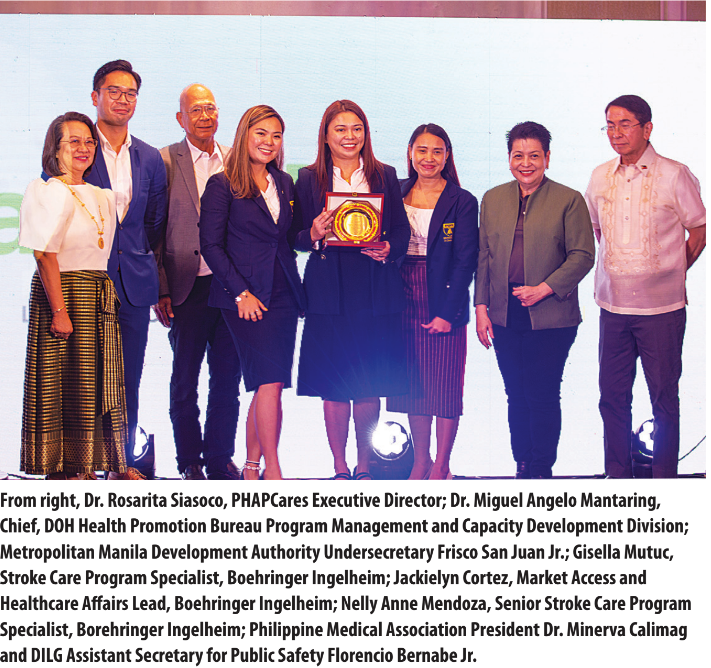
The ANGELS Initiative was launched globally by Boehringer Ingelheim and is endorsed by the European Stroke Organization (ESO) and the World Stroke Organization (WSO). Since 2017, the initiative has made remarkable progress in the Philippines. It began with seven consulted hospitals nationwide to currently 26 acute stroke- ready hospitals and 72 hospitals in consultation.
Stroke is a time-sensitive disease. For every minute left untreated, millions of brain cells die. The vision is to develop more centers that can treat stroke effectively for better patient outcomes. The goals of the ANGELS Initiative are: increase the number of stroke-ready hospitals so that more patients will have access to quality stroke care; and standardize/optimize the processes in existing stroke centers.
The ANGELS team leverages five pillars to achieve its goals. These pillars include: consultancy, knowledge, standardization, quality monitoring and community.
By employing the ANGELS consultancy framework, stroke teams are equipped to optimize stroke pathways, customize and implement protocols, access training and tools, do quality monitoring, and be empowered to deliver better outcomes. Within the ANGELS community, local stroke teams can learn and share good practices among their peers and even globally.
Together with the WSO, the ANGELS Initiative recognized stroke centers with exemplary performance across a set of criteria. As of the third quarter of 2022, some 10 public and private hospitals nationwide were conferred with WSO ANGELS Awards.
As advocates of public awareness, the ANGELS Initiative educates Filipinos to recognize stroke symptoms and seek medical attention immediately. During the height of the pandemic, the “Stroke Don’t Stay at Home” campaign was launched to assure patients of the safety and readiness of healthcare facilities to handle stroke cases. The campaign used numerous local dialects to further spread the message nationwide. Information and education materials as well as media interviews of stroke experts were mounted and reached a total media value of more than 15 million.
◾Merck Fun Run-A Race to 200
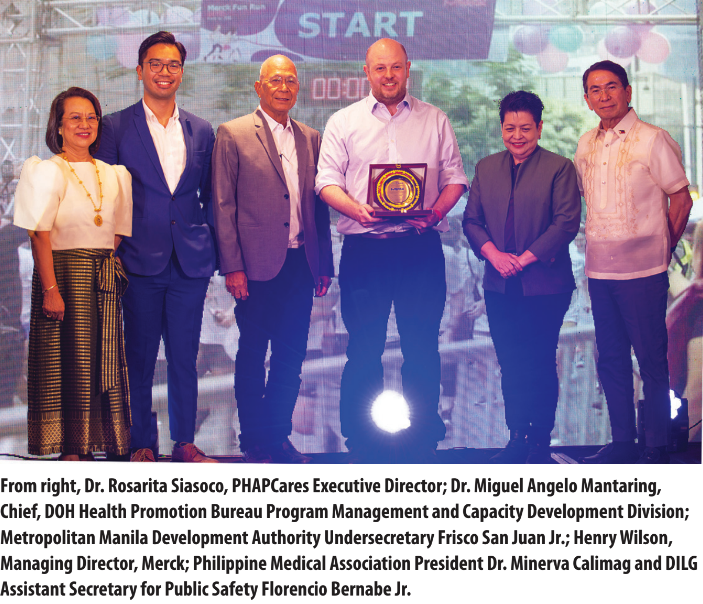
To promote the health and well-being of their employees and to encourage collaboration within the businesses, Merck organized a Fun Run. A fun, physical and social activity with a cause, the Fun Run would also be an opportunity for the management to assess the health status of Merck employees.
In terms of project impact, Merck listed three: Ensure the health and well-being of Merck employees as this is the top priority of the management; foster inclusiveness at Merck Philippines; and promote employee engagement and create a sense of purpose by raising funds for a science classroom that will benefit Taguig City students. Participants were able to raise more than P300,000. Based on their initial assessment, the majority of Merck employees were generally fit for physical activity. There was active participation among employees and their families from the various Merck businesses, (Merck Health care, Merck Life Science and Merck Business Solutions) who attended the activity.
The innovation in this program is that it was an employee wellness program for a cause. The wellness activity promoted healthier behavior among employees. It helped reduce stress; reduce elevated health risks like blood glucose, blood cholesterol, and blood pressure, and reduce healthcare costs. The fundraising activity, on the other hand, brought the employees together for a common good and encouraged generosity and kindness in the workplace. Overall, the two programs, when combined, increased work productivity and boosted workforce morale and innovations.
The Run for a Cause project is easy to build upon and be replicated by other communities and partners. There is an abundance of wellness activities (mental or physical programs) that the employees or company can choose from, since there are a lot of non-profit organizations or relevant institutions that Merck can partner with in the Philippines. In terms of sustainability, stakeholders can choose the activities and causes that they are most passionate about and can commit to. Aside from the financial aspect, the time, talent, and effort provided by the employee to these causes can bring about a lot of positives to the company and its employees.
◾Roche Philippines—2030 Mission Leapfrog: #ClosingTheCareGap in Cancer for Women in Leaps and Bounds
The 2030 Mission Leapfrog Project (MLP) aims to accelerate the transformation in healthcare outcomes by attempting to achieve 2030 health systems today.
Roche is responding to the #ClosingTheCareGap for cancer patients by focusing on the journey of breast or cervical cancer patients and working closely with healthcare ecosystem partners. These range from patient groups to government units to provide critical services such as improving primary healthcare early detection, timely intervention, and a fully funded referral system.
The Project supports the National Integrated Cancer Control Act (NICCA) and the Universal Health Care (UHC) Law which aims to achieve equitable access to quality and affordable healthcare for all Filipinos and to instill health consciousness. The objective is to help improve healthcare systems by “leapfrogging” to a better state in a shorter time and providing better community outcomes.
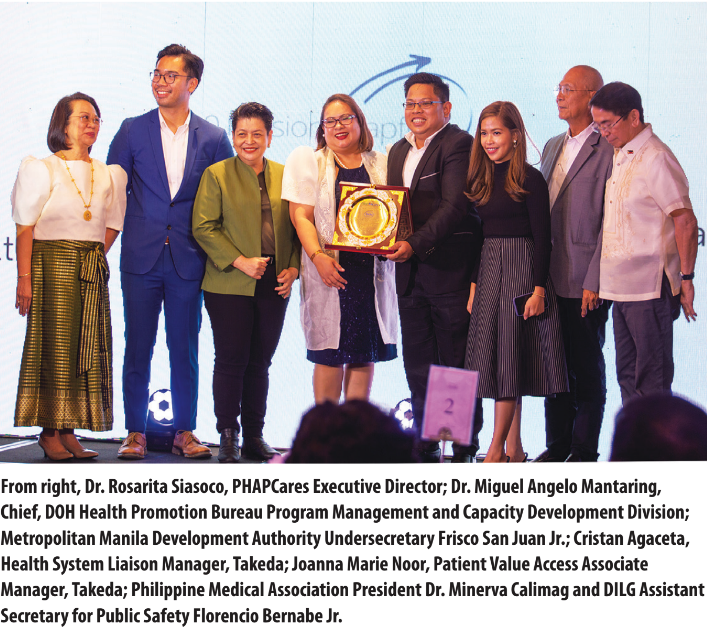
MLP has four essential components: (1) mobilization and education to address fear and/or confusion; (2) early screening, innovative diagnosis, and treatment; (3) laying the groundwork for a fully-funded referral system; and (4) institutionalizing a cancer program supported by policy/law.
What started from one pilot city (Tacloban) in March 2022, MLP is now extended to three MLP sites Tacloban, Tayabas, Valenzuela; initially focusing on DepEd teachers and is now expanding to high risk women in the community. More areas, private and government institutions have even signified interest in the project reaching more Filipinas in the country.
A crucial component of MLP is leveraging technological innovations to address healthcare concerns.
These technological innovations include:
• LIFE. A next generation telemedicine platform that resulted from a partnership between LabX Roche and LabX. It is offered free of charge to MLP patients. Department of Education Tacloban City adopted the LIFE platform to support cancer eligibility assessment and screening. The platform proved beneficial for the safekeeping of medical records, important documents and tracking of enrolled patients’ status;
• Strong for Someone Facebook community page. Roche tapped the power of social media by building a community page on Facebook to unite patients, their families, doctors, government institutions and relevant organizations to form community support against cancer. The page regularly holds “Cancer Carenections,” an online interactive forum for cancer education;
• Patient Helpline. Launched for patients and their caregivers and is a dedicated hotline that aims to empower patients with critical information and support their need for cancer disease awareness platforms, nearby hospitals, diagnostic facilities and services, funding and treatment and support groups.
• GabayKa website and app. This website and mobile app are designed to provide basic education on cancer. They also assist users to remember appointments, provide support services to ease the user’s mind, and address cancer related concerns. With GabayKa App, clinically relevant information is personalized, easily accessible and kept up-to-date.
MLP lays the groundwork for LGUs to have a sense of ownership and ensure sustainable accessibility of care to constituents. It was necessary to reach out to different organizations with varying resources to sustainably implement the project.
A major breakthrough is when LGUS committed to co-create a cancer scorecard to achieve health systems maturity. This will enable the local health board to create resolutions/ordinances that prioritize cancer care even if there is a change in leadership.
◾Takeda—Takeda’s Access to Medicines: Patient Assistance Program
Through its Patient Assistance Program, Takeda Philippines provided financial assistance to over 580 patients nationwide, helping them complete their treatment for Hodgkin’s Lymphoma and Inflammatory Bowel Disease (IBD). Regardless of the patient’s socio-economic class, they had full access to medication whose cost is based on the patient’s individual capacity to pay allowing a significant number of patients with financial limitations to gain full access to the program.
In a 2020 Annual report of Pilipinas Shell Foundation, a partner foundation of Takeda, over 500 million pesos worth of program support were provided by Takeda to Filipino patients with Hodgkin’s Lymphoma and IBD. Aside from the program’s initiatives to improve direct access to treatment by Filipinos, meeting the other challenges in the patient journey were also part of the program’s holistic goals. Focusing on diseases with the highest unmet need, Takeda’s mission is to bring—as quickly as possible— its innovative medicines of the highest quality to patients.
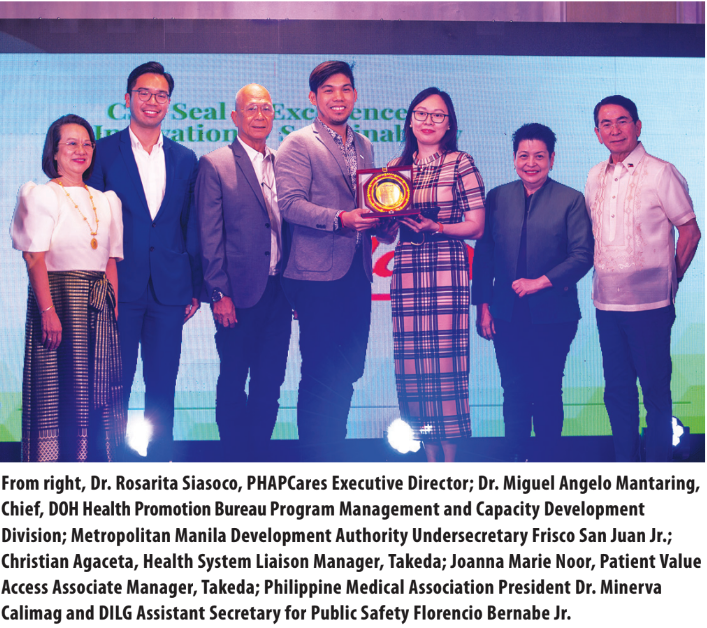
Since Takeda cannot do this alone, the vision is to adopt a multi-stakeholder approach to this patient journey to ensure greater disease awareness, timely and accurate diagnosis and appropriate treatment, patient support, as well as care for patients with lymphoma and IBD. Takeda’s value-based approach to healthcare begins with how the company prices their products, in which the company upholds value-based, tiered pricing principles to reflect the holistic value they offer to patients with respect to the country’s healthcare system and society. The innovative patient journey framework of Takeda serves as the holistic roadmap to address the multi-faceted challenges in terms of disease awareness, diagnosis and patient support which are all critical pillars to address for patients suffering from rare cancers and rare diseases. Takeda believes an integrated, collaborative and sustainable approach to patient access can help address the challenges health systems and patients face.
Because health systems and access challenges differ, Takeda tailors its approach by working with local stakeholders, based on country needs and demographics (including income). Thus, it implemented a unique and customized financial scheme for Filipino patients in need of financial support to access their treatment, regardless of their income status and locality.

